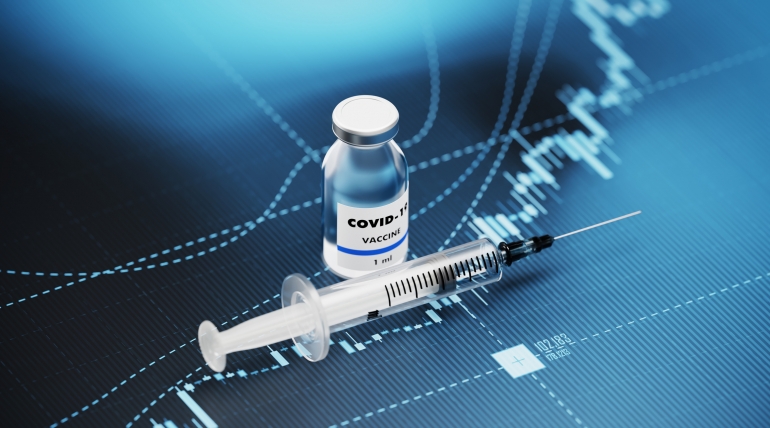Tue 21 September 2021
By Wei WANG
Translated by Dr Xue BAI
Discussions over waiving intellectual property (IP) rights for COVID-19 vaccines were initiated by India and South Africa at the World Trade Organization (WTO) in October 2020. This Covid-19 vaccine IP waiver proposal has been supported by many governments since it was endorsed by the U.S. government in May 2021. The question that follows is whether waiving IP protections for COVID-19 vaccines temporarily can promote the production of such vaccines, helping tackle inequitable distribution?
On 24 June 2021, Co-Director of the Herbert Smith Freehills China International Business and Economic Law (CIBEL) Centre, Professor Heng Wang was interviewed by SBS Chinese on this topic. In this interview, Professor Wang stated that waiving IP rights for COVID-19 vaccines may not fully solve the current problems in production and distribution of COVID-19 vaccines because “in reality, it will take time for this waiver proposal to be widely accepted and supported. The more urgent issue at this moment is the production of the vaccines, which includes obtaining authorisation from manufacturers.”
Professor Wang explained that there are four main areas which would impacted by the waiver proposal: copyright, industrial design, patents, and the protection of undisclosed information. Patents are probably the key issue. He said that If the Covid-19 vaccine IP waiver proposal is passed, it will have a bigger impact on vaccine manufacturers. However, he also pointed out that the Covid-19 vaccine IP waiver proposal may not be able to solve all the issues in the manufacturing process, especially issues related to the supply of raw materials and production equipment.
Professor Wang noted that it is reasonable to assume that there will be adverse impact on existing vaccine manufacturers if the proposal to waive IP rights for the COVID-19 vaccines is passed. Given the current severe nature of the pandemic, the urgent issue is to manufacture vaccines efficiently, while distributing them fairly. Professor Wang said that “from this perspective, if the proposal to waive IP rights for the COVID-19 vaccines could expand manufacturers’ production capacity and scale up distributions to more developing countries, it could be helpful to solve the urgent issues.” However, Professor Wang also pointed out that, “some analysts have argued that the reason why the US government supported the proposal to waive IP rights for the COVID-19 vaccines is so that they have more bargaining chips and leverage when negotiating with manufacturers.”
When asked about whether the proposal of allowing vaccine manufacturers to set up more factories in the area severely affected by COVID-19 could potentially replace the proposal of waiving IP rights for COVID-19 vaccines, Professor Wang stated that consensus of the 164 members of the WTO must be obtained in order to pass the Covid-19 vaccine IP waiver proposal. Australia, as a WTO member, has not stated its position on the proposal yet. When asked about the possible reasons, Professor Wang said, based on his observation, on the one hand, there could be concerns that the Covid-19 vaccine IP waiver proposal could cause unintended effect. At the current stage, manufacturers really need to increase vaccine production. On the other hand, the Covid-19 vaccine IP waiver proposal could be a long-term solution. Professor Wang noted that:
“In the long run, once the IP rights of the COVID-19 vaccine are waived, COVID-19 vaccines can be manufactured and used more often. In the short term, waiving IP rights for the COVID-19 vaccines will put pressure on manufacturers. Therefore, the Covid-19 vaccine IP waiver proposal touches upon the issue of balancing long-term interests and short-term interests.”
Professor Wang also emphasised that IP rights are ultimately a balance between public interest and IP holders’ interest.
“The current issues about waiving IP rights for COVID-19 vaccines show how to strike a balance between the protection of public health and the encouragement of research and development (R&D). It is necessary to ensure that the public can obtain relatively fast and reasonably priced vaccine supplies, while enabling IP rights holders to continue R&D and innovation."
This article is republished and translated from SBS Chinese under a Creative Commons license. Read the original article.
Professor Wang’s research may be found at ResearchGate, SSRN, Twitter @HengWANG_law, and LinkedIn.
